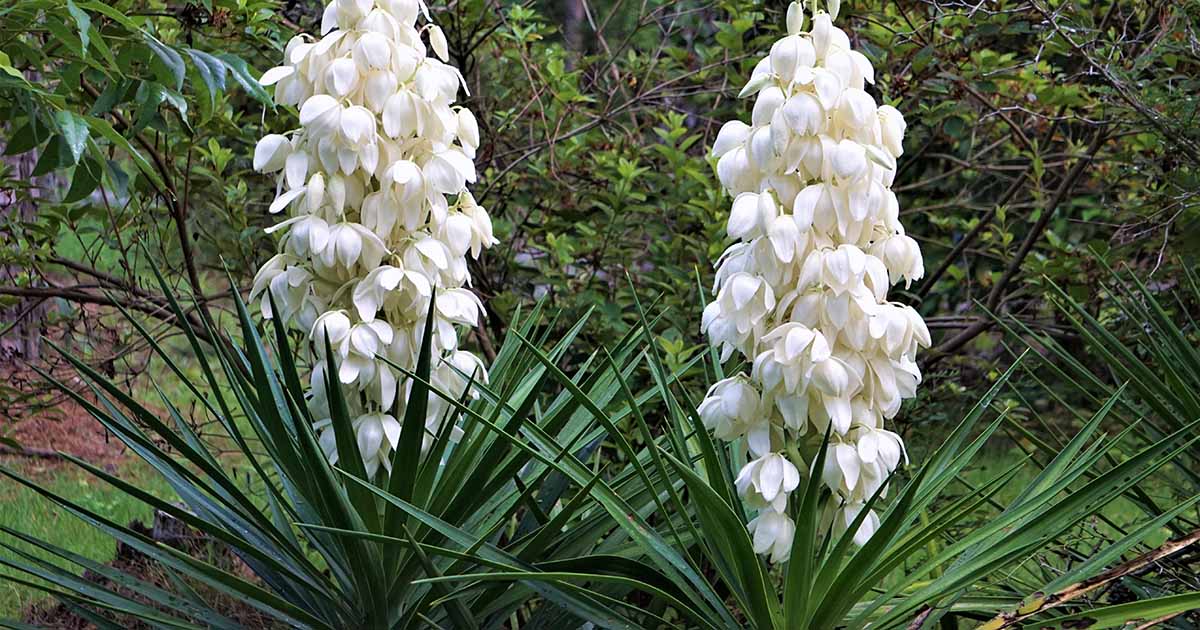
When it comes to remarkable and unique flowers, the Yucca flower certainly takes center stage. With its distinct features and fascinating characteristics, the Yucca flower has captivated the attention of plant enthusiasts and nature lovers alike. Found in arid regions of North and Central America, this extraordinary flower possesses a range of qualities that make it truly exceptional.
In this article, we will explore 11 extraordinary facts about the Yucca flower that will deepen your appreciation for this remarkable plant. From its impressive ability to withstand harsh conditions to its intricate pollination process, the Yucca flower has a story to tell. So, let’s dive in and uncover the fascinating world of the Yucca flower.
Key Takeaways:
- The Yucca Flower, native to North America, blooms in various colors and has a special relationship with yucca moths, making it a favorite among hummingbirds and a symbol of resilience.
- Yucca plants, known for their height and medicinal uses, hold cultural significance for Native American tribes and are popular choices for landscaping due to their striking appearance.
The Yucca Flower is native to North America.
The Yucca Flower, scientifically known as Yucca, is a stunning flowering plant that is native to North America. It is commonly found in arid regions such as deserts, grasslands, and sandy areas. With its unique beauty and ability to thrive in harsh conditions, it has become an emblematic symbol of the American southwest.
Yucca is a member of the Agave family.
The Yucca Flower belongs to the family Agavaceae, which also includes other well-known plants such as Agave and Aloe vera. These plants share similar characteristics, such as succulent leaves and impressive flower stalks. However, Yucca stands out with its iconic sword-like leaves and tall, majestic flower spikes.
The Yucca Flower blooms in a variety of colors.
One of the most remarkable aspects of the Yucca Flower is the vast array of colors it can display. While white is the most common color, Yucca flowers can also be found in shades of yellow, cream, pink, and even purple. This diversity adds to the plant’s visual appeal and makes it a favorite for gardeners and nature enthusiasts.
Yucca flowers are pollinated by yucca moths.
An interesting fact about Yucca flowers is their intricate relationship with yucca moths. The Yucca Flower and yucca moth have a mutualistic partnership, where the moths help pollinate the flowers in exchange for a place to lay their eggs. The moths collect pollen and transfer it between flowers, ensuring the plant’s reproduction while providing a food source for their larvae.
The Yucca Flower has edible parts.
Yucca plants have long been utilized by Native American tribes for their various edible parts. The flowers, fruit, and even the stems can be prepared and consumed. The flowers can be eaten raw or cooked, while the fruit can be turned into jams or used in baking. The root of the Yucca plant, often called the “yucca potato,” can also be cooked and eaten.
Yuccas are known for their impressive height.
When it comes to size, Yucca plants do not disappoint. Some species can reach towering heights of up to 30 feet (9 meters) or more. This makes them a dominant presence in landscapes and adds a touch of grandeur to any garden or natural setting.
The Yucca Flower is a symbol of beauty and resilience.
The Yucca Flower represents more than just a pretty face. It is often regarded as a symbol of strength, endurance, and adaptability. Thriving in harsh conditions and challenging environments, the Yucca Flower serves as a reminder of the beauty and resilience that can emerge from adversity.
Yucca plants can be used for medicinal purposes.
Throughout history, Yucca plants have been recognized for their medicinal properties. Native Americans used various parts of the plant to treat ailments such as arthritis, digestive issues, and skin conditions. The plant’s extract is still used today in herbal medicine for its potential anti-inflammatory and antioxidant properties.
Some Yucca species are used in landscaping.
Due to their striking appearance and ability to withstand challenging climates, certain Yucca species have become popular choices for landscaping. They can add a touch of elegance and drama to gardens, with their tall flower spikes, architectural leaves, and evergreen foliage.
The Yucca Flower is a favorite among hummingbirds.
The Yucca Flower’s vibrant colors and nectar-rich blossoms make it a favorite food source for hummingbirds. These tiny, energetic birds are attracted to the Yucca’s sweet nectar and play a vital role in the plant’s pollination process.
Yucca plants have cultural significance.
Native American tribes have long held Yucca plants in high regard, attributing cultural and spiritual significance to them. The plant’s fibers have been used in traditional weaving techniques to create baskets and mats, while its leaves have served as materials for construction and crafts.
Conclusion
In conclusion, the Yucca flower is truly a remarkable plant with a rich history and incredible features. From its stunning appearance to its diverse range of uses, the Yucca flower has captivated both nature enthusiasts and researchers alike. Its ability to thrive in harsh conditions, adapt to different climates, and provide various benefits to wildlife and humans is truly extraordinary. Whether you are fascinated by its unique pollination process or enthralled by its medicinal properties, the Yucca flower continues to be a subject of awe and admiration. So, the next time you come across a Yucca plant or its beautiful blooms, take a moment to appreciate the extraordinary facts that make it such a fascinating part of our botanical world.
FAQs
1. Is the Yucca flower toxic to humans?
No, the Yucca flower is not toxic to humans. In fact, it has been used for centuries in traditional medicine for its various healing properties.
2. Are Yucca flowers edible?
Yes, certain species of Yucca flowers are edible. They can be used in salads, soups, and other culinary dishes, providing a unique flavor and texture.
3. How long does it take for Yucca flowers to bloom?
The time it takes for Yucca flowers to bloom can vary depending on the species and growing conditions. Generally, it can take anywhere from a few weeks to several months for the flowers to fully bloom.
4. Can Yucca flowers be grown indoors?
Yes, certain species of Yucca plants can be grown indoors as houseplants. They require bright indirect light and well-drained soil to thrive.
5. Are Yucca flowers beneficial to wildlife?
Yes, Yucca flowers are an important source of food for certain pollinators, such as yucca moths. They also provide nectar for bees, butterflies, and other insects.
6. Can Yucca flowers be used for medicinal purposes?
Yes, Yucca flowers have been used in traditional medicine to treat various ailments, including joint inflammation, arthritis, and skin conditions.
After learning about yucca flowers' extraordinary qualities, why not explore more botanical wonders? Delve into the enchanting world of New Mexico's state flower and uncover its captivating characteristics. From its vibrant colors to its cultural significance, there's so much to appreciate about this iconic blossom. Whether you're a nature enthusiast or simply curious, these articles will take you on a fascinating journey through the realm of flowers. So, let your curiosity bloom and discover the marvels that await in the world of botany!
Was this page helpful?
Our commitment to delivering trustworthy and engaging content is at the heart of what we do. Each fact on our site is contributed by real users like you, bringing a wealth of diverse insights and information. To ensure the highest standards of accuracy and reliability, our dedicated editors meticulously review each submission. This process guarantees that the facts we share are not only fascinating but also credible. Trust in our commitment to quality and authenticity as you explore and learn with us.


